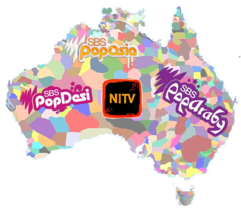SBS – the Special Broadcasting Service – is the world’s first broadcaster established solely as a multicultural, multiethnic broadcaster. Prior to SBS, other broadcasters including the ABC had aired various foreign language programs (on Sunday mornings) but the Anglo-centric monoculture of the ABC hampered the full potential of multiculturalism in all its glory. The need for SBS to exist in its own right was soon realised.
Established by the Fraser Coalition government, SBS began its own TV transmissions in 1980 broadcasting on channels 0/28. SBS-TV was built on the back of the publicly funded multilingual radio stations 2EA and 3EA by the Whitlam Labor government in 1975.
 From its humble beginnings, with coverage in Sydney and Melbourne of only eight languages, SBS grew to become a national broadcaster. It now broadcasts in 74 languages weekly on radio — twice as many languages as the BBC. SBS television and online has up to 60 languages.
From its humble beginnings, with coverage in Sydney and Melbourne of only eight languages, SBS grew to become a national broadcaster. It now broadcasts in 74 languages weekly on radio — twice as many languages as the BBC. SBS television and online has up to 60 languages.
SBS was created to welcome and support successive waves of migrants from different countries; to inform and educate new arrivals in their own languages – and in English about Australia – and similarly inform, educate and entertain all Australians about the value of cultural diversity. Our national multicultural broadcaster reflects and celebrates this like no other broadcaster can because unlike its early television beginnings, it is not constrained by a ‘host’ broadcaster.
SBS is a remarkable institution and a major part of the success story of multicultural Australia.
